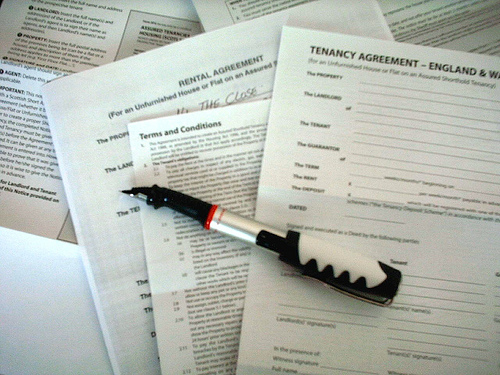 As you know, people sign contracts everyday. Contracts solidify agreements between, friends, professionals, consumers, tenants and companies. That said, you may (or may not) be surprised to hear that the issue regarding the failure of one party to read a contract before signing it, comes up, frequently. Generally, the party that failed to read the contract has been a victim of fraud or mistake. So the question then becomes: does your failure to read a contract before signing it mean that you cannot recover because of fraud or mistake? The answer is not so easy, in Georgia.
As you know, people sign contracts everyday. Contracts solidify agreements between, friends, professionals, consumers, tenants and companies. That said, you may (or may not) be surprised to hear that the issue regarding the failure of one party to read a contract before signing it, comes up, frequently. Generally, the party that failed to read the contract has been a victim of fraud or mistake. So the question then becomes: does your failure to read a contract before signing it mean that you cannot recover because of fraud or mistake? The answer is not so easy, in Georgia.
Generally, Georgia law presumes that parties to a contract have read the contract before signing it. So when a party states that he or she failed to read a contract, Georgia courts first determine whether that person is literate or illiterate.
A literate person who fails to read a contract has a tough road, because he or she has to show:
(1) An emergency at the time of signing that would excuse the failure to read; or
(2) That the opposite party misled you by artifice or device (trickery) that prevented you from reading the contract; or
(3) That a fiduciary or confidential relationship existed between you and the opposite party upon which you relied in not reading the contract.
Be mindful that Georgia courts take this issue very seriously, so excuses such as “I was in a hurry,” or “I was too busy,” or “I forgot my reading glasses” will not suffice.
Moreover, even if you were able to prove that a confidential or fiduciary relationship existed (see number [3] above), you must show that you relied on that relationship in not reading the contract. That means: if a confidential relationship exist, but you failed to read the contract because you were in a hurry (not because of the confidential relationship), then you will most likely lose, before a court in Georgia. This all makes sense because whatever agreement you and another party deemed important enough to put in writing, should also be important enough to read before signing, at least in the opinion of Georgia courts, notwithstanding legal exceptions (see above).
Regarding an illiterate party, he or she may generally rely on the representations made by another party. However, to be safe, an illiterate person should have the contract read to him or her because, in Georgia, an illiterate party must exercise ordinary care in ascertaining the contents of a contract before signing it. This also applies to those parties who are unable to read English.
Ultimately, the facts of your case as they apply to Georgia law will strongly influence the outcome of your case. If you failed to read a contract and that failure has resulted in you being a victim of fraud or mistake, we suggest you contact a good lawyer.
Williams Oinonen LLC knows how to maximize your position, both in the court and at the negotiating table, regarding contract dispute litigation. We can help you, effectively. Call us today for an initial consultation.
 Georgia Injury Lawyer Blog
Georgia Injury Lawyer Blog

